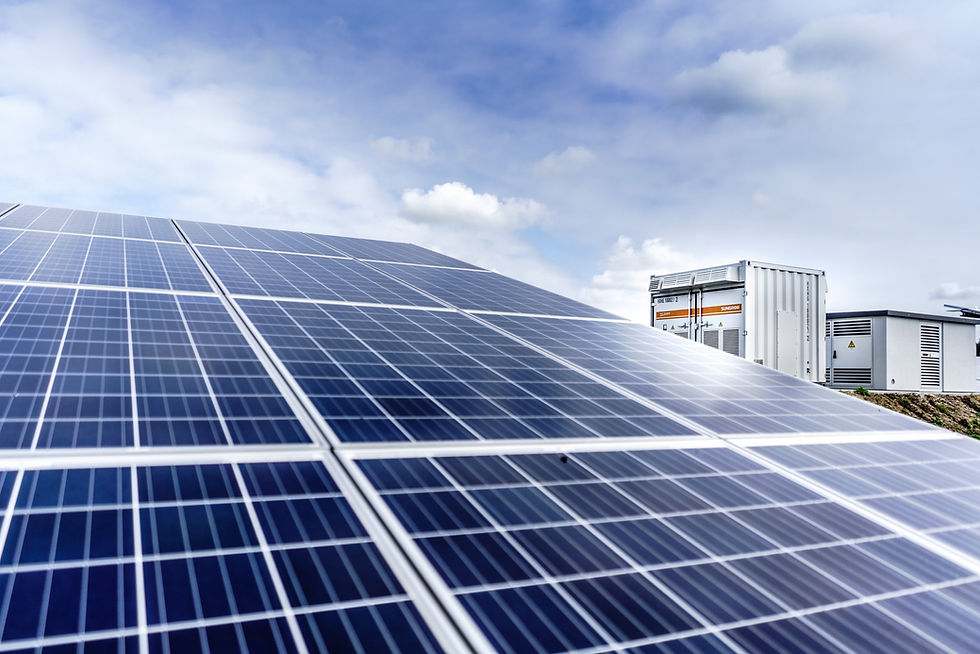Understanding your energy use; why energy monitoring is vital for solar systems
- Jun 9, 2023
- 3 min read
Updated: Jul 12, 2023
In recent years, the adoption of solar energy systems has surged, driven by a growing awareness of the need for sustainable and renewable energy sources.
Solar power offers numerous benefits, such as reduced carbon emissions, cost savings, and energy independence. However, to truly harness the full potential of solar energy, it is crucial to incorporate energy monitoring into these systems.
Energy monitoring provides valuable insights into the performance and efficiency of solar systems, empowering users to optimize their energy usage and maximize their environmental and financial benefits.

Let's dive into why to monitor your energy, and the vital role it plays in the success of solar power systems
Real-time Performance Evaluation: Energy monitoring enables solar system owners to assess their system's performance in real-time. By tracking key metrics such as energy production, consumption, and storage levels, users can gauge the effectiveness and efficiency of their solar setup. Real-time monitoring helps identify any issues or anomalies promptly, allowing for timely troubleshooting and maintenance. This ensures that the solar system operates at its peak performance, delivering the maximum possible energy output.
Efficient Energy Consumption: Solar systems generate electricity based on the availability of sunlight. Monitoring energy usage patterns helps users align their electricity consumption with solar generation. By understanding when and how energy is used, individuals can make informed decisions about optimizing their electricity consumption. This might involve shifting high-energy activities to periods of peak solar production or identifying energy-intensive appliances that could be replaced with more energy-efficient alternatives. Energy monitoring promotes mindful energy consumption and facilitates the reduction of electricity waste, resulting in further cost savings and environmental benefits.
Financial Savings: One of the primary reasons for installing solar systems is to save money on electricity bills. Energy monitoring enhances these savings by providing detailed insights into the solar system's financial performance. Users can monitor the amount of electricity generated, the amount consumed, and the excess energy exported back to the grid. With this information, individuals can accurately assess their return on investment, track the payback period, and estimate the overall cost savings achieved through their solar installation. Energy monitoring empowers solar system owners to make data-driven decisions regarding their energy usage, resulting in greater financial benefits.
Predictive Maintenance and System Optimization: Regular monitoring of solar system performance allows users to detect potential issues before they become critical problems. By analyzing historical data and comparing it with real-time performance, energy monitoring can highlight any deviations or inefficiencies. This proactive approach enables individuals to schedule timely maintenance and repairs, avoiding costly breakdowns and downtime. Additionally, energy monitoring can identify opportunities for system optimization, such as repositioning solar panels for better sun exposure or upgrading components to enhance overall performance. Optimizing the solar system ensures the greatest energy output, prolongs the system's lifespan, and maximizes the return on investment.
Environmental Impact: Solar energy systems contribute significantly to reducing greenhouse gas emissions and combating climate change. Energy monitoring reinforces these environmental benefits by encouraging responsible energy consumption. By monitoring energy usage, individuals become more aware of their ecological footprint and are motivated to reduce unnecessary energy consumption. Through energy monitoring, solar system owners actively participate in the global transition toward cleaner, more sustainable energy sources, making a positive impact on the environment and future generations.
Energy monitoring is a fundamental component of any solar system. It empowers users to monitor real-time performance, optimize energy consumption, save money, proactively maintain the system, and reduce their environmental impact. With the wealth of information provided by energy monitoring, solar system owners can make informed decisions, fine-tune their energy usage, and unlock the full potential of solar energy. By embracing energy monitoring, we take a significant step towards a greener and more sustainable future.
At enee.io we develop remote energy monitoring systems to support your business in streamlining your maintenance processes and keeping your systems running, at the lowest cost. Get in touch today to get started.